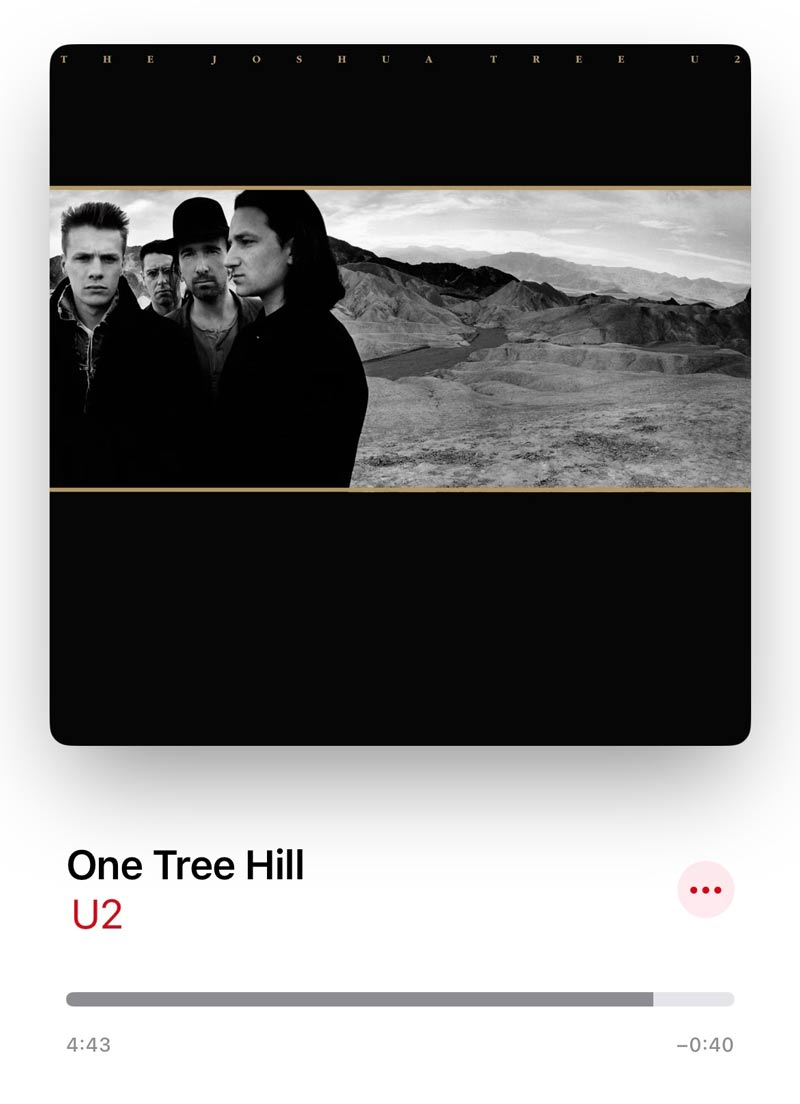There’s a song I love by a band I’m sure you’ve heard of: U2.
At the tail end of One Tree Hill, following an emotionally inspiring interlude with an epic ad lib by Bono, the song suddenly stops; it simply …. stops.
Even despite a timestamp showing there’s still 40 seconds left to the song, everything about the musical elevation and the emotional escalation abruptly ends.
See Exhibit A

In music theory, this term is called a casesure (say-zura). It represents a metrical break between phrases—or in this case, a dramatic pause between the interlude and the (yet-to-be-known) outro.
But because Bono is far too seasoned of a songwriter to simply throw in a generic casesure for the sake of compositional technique, I’m betting the recorded moment had far more to do with creating a period of rest to honor the emotional crescendo, so that us listeners can have space to pause and sit with the impact of the music.
U2 knows the rests in the music are just as important as the notes.
Our lives need “metrical breaks,” too.
As much as we’d love to keep flying through life, enjoying activity-after-activity and back-to-back vacations and holidays, constant elevation and escalation is not sustainable.
We may like to believe we’re inexhaustible in our ability to accomplish, achieve, succeed, and get things done, but even The Edge knows he can’t play a soaring guitar riff forever.
And for as much as Bono’s solos are compelling, and in the moment we may feel like we never want them to end, the reality is, it’s the halts, the shifts, and the stops in the overall flow of the music that creates space for appreciation.
We need rest.
We need periods of “stop” to honor the emotional crescendos and the ongoing escalation of our lives.
So, as you explore the soul work of rest in today’s intermission, take time to listen to the song of your life.
- Where do you need more space?
- What areas of toil do you need to stop?
- What activity, perhaps, might need an abrupt end?
Pause.
Listen to this.
Sit with the impact.
And remember, the rests are just as important as the notes.
“Just like a musical composition, life requires both notes and rests to create harmony.” —The Oaks
—With Joy
Pause for Thought
“Instead of asking, ‘Have I worked hard enough to deserve rest?’ ask, ‘Have I rested enough to do my most loving, meaningful work?’”
Pause for Practice
“Are you tired? Worn out? Burned out on religion? Come to me. Get away with me and you’ll recover your life. I’ll show you how to take a real rest. Walk with me and work with me—watch how I do it. Learn the unforced rhythms of grace. I won’t lay anything heavy or ill-fitting on you. Keep company with me and you’ll learn to live freely and lightly.” —Matthew 11:28-30, MSG
- Silencio (Silence) — Quiet yourself before God. Put yourself in God’s presence.
- Lectio (Read) — Read the provided passage slowly, allowing a word or phrase to resonate. Linger there. Notice what catches your attention.
- Meditatio (Meditate) — Read the passage again and listen for where the word or phrase connects with your life. What are you being drawn to?
- Oratio (Pray) — Read the passage one more time, listening attentively. Do you feel an invitation to respond? Pray a prayer of your heart.
- Contemplatio (Contemplate)— Deeply receive God’s Word. Sit quietly. Rest in His presence.
Pause for Examination
“The following list is a “rest check” so you can “listen” to your life and pay attention to where your life rhythm could use a shift, or a restoring break.
“Embracing rest is not a one-size-fits-all journey. It’s about discovering what kind of rest you need and integrating it into your routine. Just as a garden needs periods of fallow to flourish, our lives require pauses to thrive.” —The Oaks
- Physical Rest — Adequate sleep is the foundation of a rested body. Listen to your body’s signals and prioritize quality sleep. Equally important is moving at a pace that suits you, giving your body the chance to recover and rejuvenate.
- Mental Rest — Our minds are constantly processing information, often leading to mental fatigue. Engage in activities that encourage mindfulness, like meditation or quiet walks. Give your mind the freedom to slow down and recalibrate.
- Emotional Rest — Emotions can be as draining as physical exertion. Surround yourself with positive influences, engage in activities that bring joy, and allow yourself to express feelings without judgment.
- Creative Rest — Even our passions can become overwhelming when pursued relentlessly. Take breaks from creative endeavours to let inspiration flow naturally, rather than forcibly.
- Digital Rest — In our digitally connected age, stepping away from screens is vital. Designate tech-free periods to truly engage with the world around you.
Source: The Oaks Center newsletter, 5 Ways to Take A Real Rest, August 28, 2023
- If you would like to share this issue of PAUSE – via text, social media, or email – just copy and paste this link: https://joyover.com/pause/november-22-2023
- Click here for previous month’s art offerings
P.S. May your times of rest be as silly, light-hearted, and as flexible as this little guy’s approach to eating ice cream 😜






